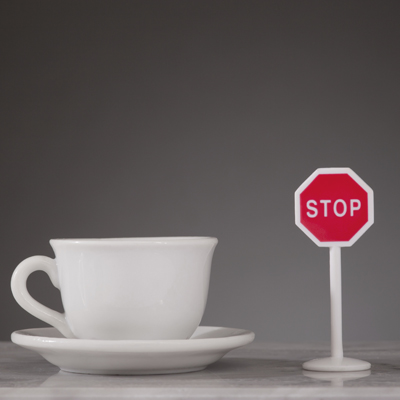We clearly know we should avoid smoking and too much exposure to UV radiation from the sun because these can increase the risk of cancer. But perhaps something that we didn’t know is that drinking very hot drinks, especially coffee, (drinks above 65oC or 149 oF) may increase cancer of the oesophagus (gullet).
The International Agency for Research on Cancer (IARC) based on limited available human evidence recently concluded that drinking very hot beverages is associated with an increased risk of oesophogeal cancer. Their review suggested higher rates of oesophageal cancer among people who drank extremely hot drinks compared to those who consumed their drinks at lower temperatures. Additionally, new studies in experimental animals show that hot water above 65°C can act as a tumour promoter. Whilst the mechanisms to explain the findings are unclear, it has been suggested that high temperatures can damage the cells in the oesophagus, and the cancer develops as a consequence. On the basis of these considerations, IARC classified drinking very hot beverages as probably carcinogenic to humans.
It is important to remember though that the IARC classification does not give an indication as to how big the risk is, so we cannot take from this that there is a high risk of developing oesophageal cancer from drinking very hot drinks. But a commonsense approach might be not to drink anything that is hot enough to cause scalding.
So what about drinking coffee?
IARC last reviewed all the evidence for coffee and cancer in 1991, and classified it at that time as possibly carcinogenic to humans. This classification was mainly due to a handful of studies suggesting that coffee drinkers had a slightly higher risk of developing bladder cancer. But these studies were relatively small, and didn’t take into account factors like smoking (which has a clear effect on bladder cancer risk). The available scientific evidence base today is much larger and of better quality leading IARC to reassess the links between coffee and cancer. They have concluded that there’s no strong evidence that coffee increases your chances of cancer and have categorised coffee as not classifiable as a cause of cancer. Indeed some emerging evidence suggests that people who regularly drink coffee might even have a lower chance of developing some forms of cancer. But it’s far from clear whether there is a real effect. The evidence available currently isn’t strong enough to suggest either a benefit or risk.
So if you or your service users drink coffee regularly, the news is that it is not likely to increase the risk of cancer. But on the basis of such data there is also no need for those who don’t drink coffee to start. The evidence of benefit is still uncertain, and if subsequent research reveals a favourable effect on cancer, it’s likely to be small – much smaller than any positive benefits gained from things like smoking cessation, keeping a healthy weight or avoiding excess alcohol consumption.
The IARC classification on coffee is a reassuring message for coffee drinkers. Just don’t drink it too hot.







